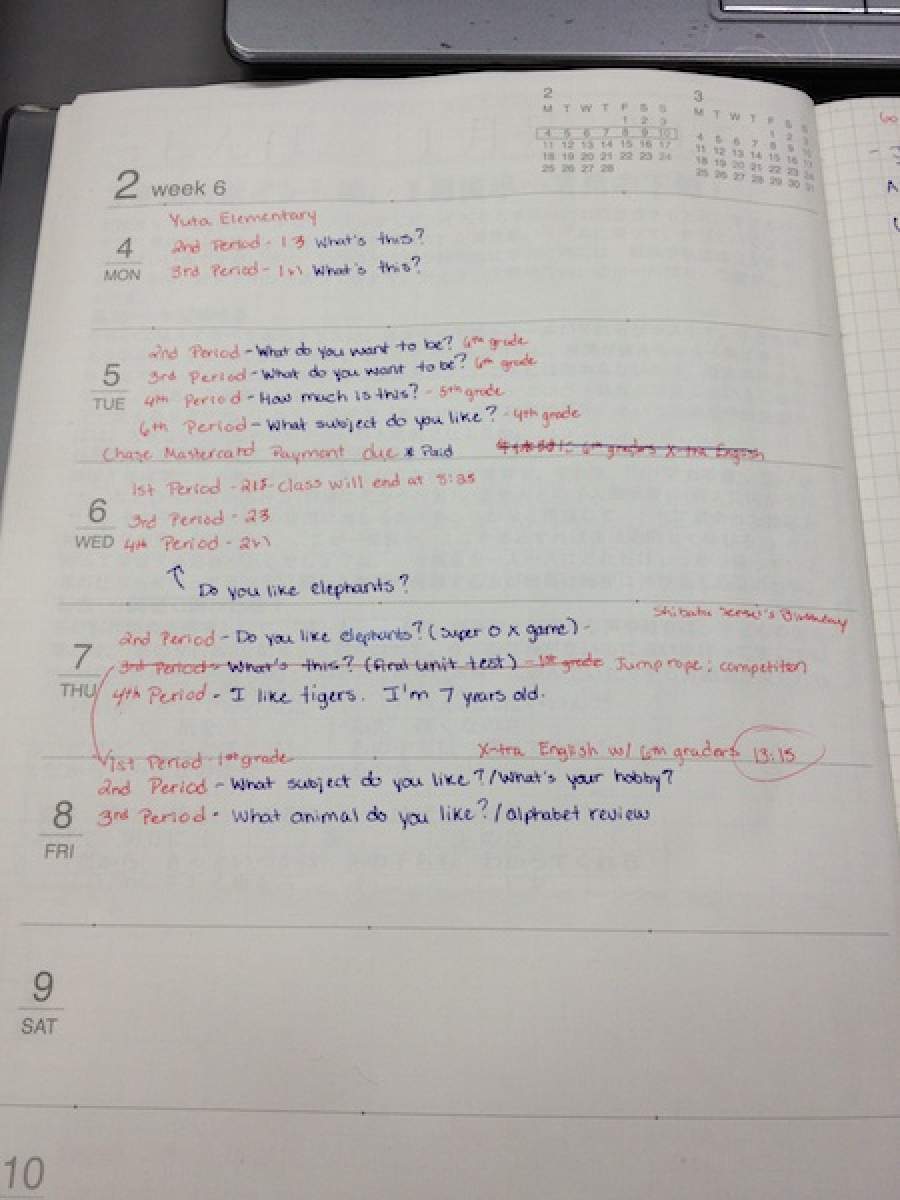Working in a foreign country can be tough since many expats and volunteers have to deal with dietary changes, culture shock and being away from home. The Japanese Exchange and Teaching Programme (JET Programme) is no different since Japan is very different from most Western countries. Everyday challenges at work can also make a work-life balance hard to attain, but with prudent planning it is possible to overcome the challenge of working in a foreign country.
As an Assistant Language Teacher (ALT), I am in charge of English language and international activities at two different elementary schools where I teach to about 500 students. Most Japanese students don’t began studying English until sixth grade, but Nagahama, Japan (West Japan) has a special pilot program where all elementary schools have ALTs contracted through the JET Programme. Below is an example of my work hours on a daily and weekly basis:
8:30 – 4:15 (12:00 – 1:00 lunch break)
Hours Teaching: 10.5 hours (14 Classes per week at 45 minutes each)
Work Hours: 35 hours
Planning/Free: 24.5 hours
Unlike most ALTs in my area, I have a somewhat relaxed and free schedule since I have to travel between two different schools. Each school is within a five-kilometre radius of my apartment. I don’t live walking distance to a train station or local entertainment spots, making it necessary to purchase a car to get around. Some of my ALT friends who live closer to the main station in Nagahama have about 18 to 22 classes at one school per week.
On average, I spend about half of my free time planning lessons and making materials for classes. The other half of my time I often wander outside the school to play with my students during recess or help with various tasks around the school such as vacuuming the teachers’ office or refilling the heaters with kerosene. (Yes, some Japanese schools are so old that there are buildings without central air. My school is over 100-years-old!) Making materials can range from creating fun and interesting games, worksheets or flashcards to keep the little ones engaged. (If Pokemon are placed on number cards, seven-year-olds are bound to be instantly interested and keen to learn.) There is always something that I could be doing to either engage my students, or to plan and make things easier for the next week or term.
Below is a small list of challenges and benefits that I have realized since moving to the Japanese countryside three years ago:
Challenges
• Living in the countryside far away from the city.
• Constantly having to find new and interesting ways to engage young minds
• Speaking a foreign language to communicate with the school’s staff and teachers.
Benefits
• Living with the locals and speaking the language.
• Shaping the minds of children who will hopefully one day become future English teachers or world travellers.
• Flexibility to take charge of your job and fine-tune interpersonal skills.
• International experience and being outside of the comfort zone.
• Creativity and imagination will flourish while working with small children.

